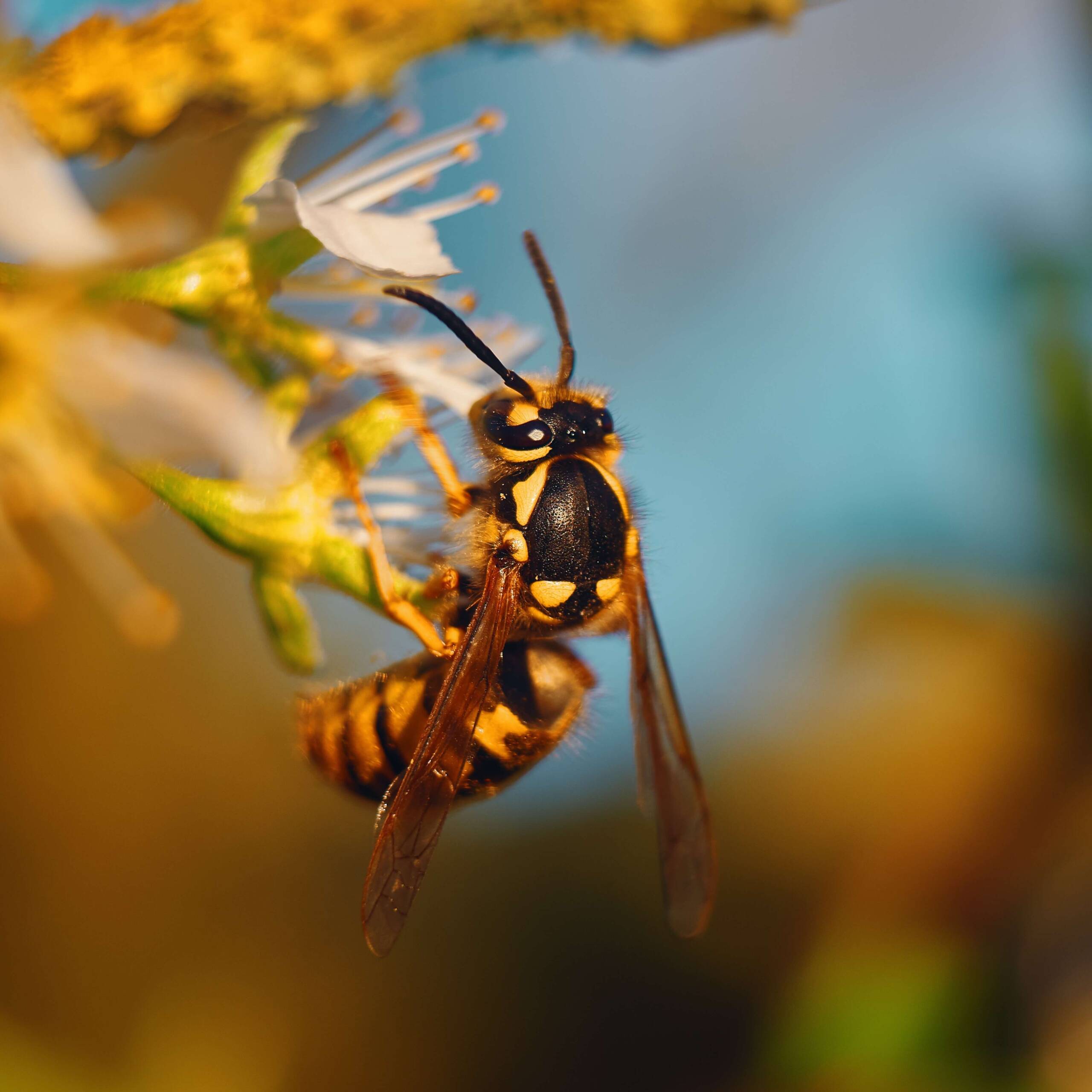Molecular bee and wasp sting allergy test
The toxin from the stings of bees and wasps can cause a severe allergic reaction in those who are sensitive to it.
This is due to a hypersensitivity reaction to the poison, which is triggered in the body by biochemical substances released by the sting.
Normally, a burning, painful, reddened, smaller than 10 cm diameter spot forms around the sting, which disappears after a few days.
In the case of a late local allergic reaction, the swelling gradually develops within a few hours around the string, and its diameter grows bigger than 10-12 cm.

However, in the case of a systemic, immediate allergic reaction, besides the swelling around the sting, various symptoms appear within 2 to 30 minutes after the sting:
- itchy skin on the palms and soles
- hives on the entire surface of the body
- swelling of the lips, throat, eyes, limbs
- abdominal complaints, nausea, vomiting, diarrhea
- shortness of breath, chest tightness
- confusion, dizziness, balance disorders
- drop in blood pressure
In the most severe cases, it may cause a loss of consciousness, respiratory arrest, or circulatory arrest.
What do the test results show?
Our test detects allergies after being stung by 3 types of insects: bee, wasp and hornet. We also measure allergen-specific IgE levels of two specific wasp (VESP) and three specific bee (API) allergens.
The risk cannot be screened with this test, the antibody can only be detected in the body after a sting.
In what cases is it recommended to perform the test?
It is recommended to perform the test after a bee or wasp bite if it caused an immediate allergic reaction.
What kind of sample is needed for the test?
The test is performed from a blood sample, taken from a vein.
What does the result mean?
Detection of antibodies to bee or wasp stings proves hypersensitivity to the poison. In all cases, contact the allergist or the doctor who ordered the test for recommendations on how to prevent severe reactions in the case of a sting.
What to do after the test?
The result is not a diagnosis, therefore always consult your doctor or the specialist who ordered the examination to establish the diagnosis and determine the necessary treatment.

